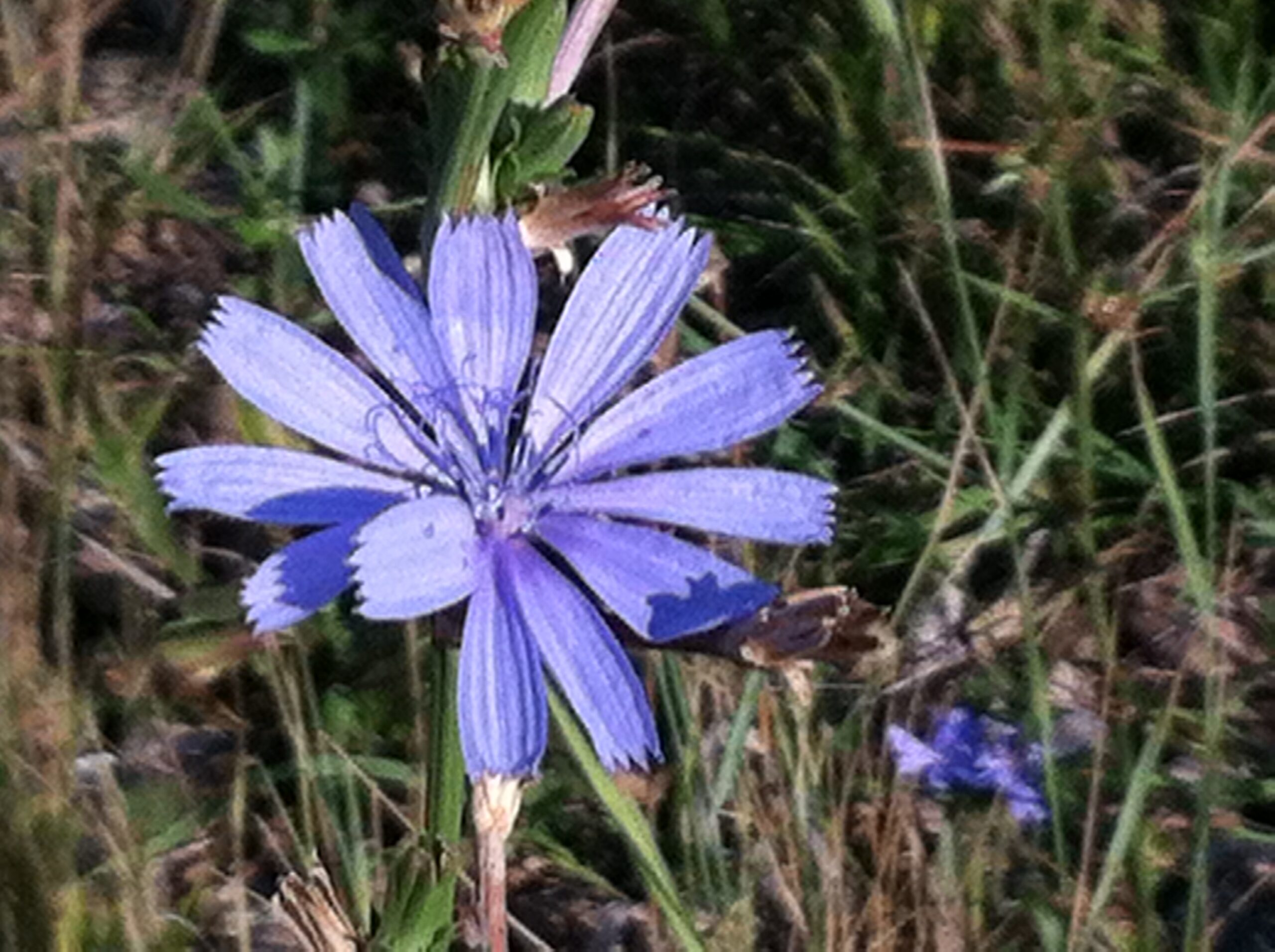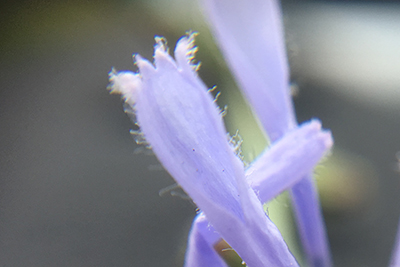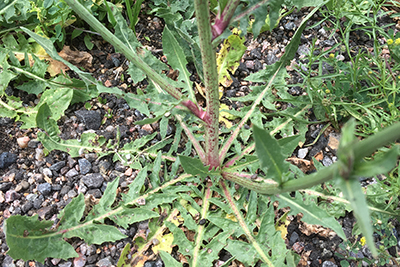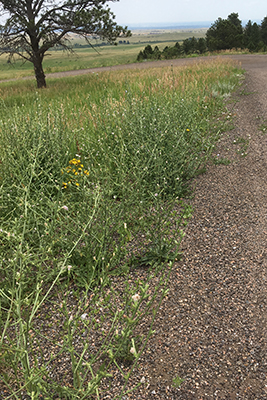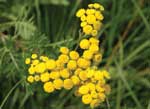Chicory
Chichorium intybus
Keys to Identification
- Blue dandelion shaped flowers
- Petals with notched, toothed tips
- Smooth stems
Family
Asteraceae – Sunflower family
Other Names
Blue sailors
USDA Code
CIIN
Legal Status
Colorado Noxious Weed List C
Identification
Lifecycle
Biennial or Perennial
Growth form
Forb/herb
Flower
Flowers are blue to lilac sometimes white, to 1½ inches wide, dandelion shaped, petals squared on tip and toothed
Flowers July-September
Seeds/Fruit
Seeds are ¾ inch long, brown, with a pappus, 3,000 per plant
Leaves
Leaves are alternate, 3-10 inches long and ½-2¾ inches wide, dark green with some red tones, lance-shaped, smooth leaf margins, fine hairs on both leaf surfaces. Become sparse on the stems
Stems
Stems long, hollow, nearly naked, branching. Green to reddish colored. Have white sap when cut
Roots
Taproot
Seedling
Rosette early-spring. Looks like a large dandelion
Similar Species
Exotics
Bachelor buttons
Natives
None
Impacts
Agricultural
Invades grasslands and pastures
Ecological
Displaces desirable plants
Human
Persistent perennial development, combined with prolific seeding causes significant financial and productivity concerns in home gardens, yards and landscape areas
Has been cultivated for forage
Habitat and Distribution
General requirements
Found on roadsides, vacant land, and cultivated fields. May sometimes move into grasslands and pastures
Distribution
Native to Europe, Asia, and Africa. Is found throughout the continental US and Canada
Historical
Known in North America since the 1700’s
References
Invasives.org – https://www.invasive.org/browse/subinfo.cfm?sub=5332
USDA Plants Database – https://plants.sc.egov.usda.gov/core/profile?symbol=CIIN
